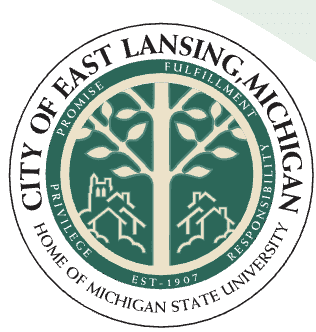By Shelia Marie Contreras
Guest writer
In May 2022, Lansing voters overwhelmingly passed a $129.7 million bond measure to build three new elementary schools. Lansing Schools elementary students and families, however, were shocked to learn that their new schools were designed without libraries and librarians. Eliminating these resources impedes student access to educational materials and violates the Library Bill of Rights.
“Library” here refers to collections of material maintained by librarians with established schedules of staff and services availability. The school library represents freedom of intellectual expression and exploration. Students have the right to decide for themselves what they want to read, in accordance with the American Library Association’s mission that minors have “equal access to all library resources available to other users.”
Design plans shared by Lansing Schools and Grand Rapids-based Kingscott Associates highlight “in-classroom libraries” and “shared libraries” as replacements for an actual school library.
Willow Elementary plans show a large gymnasium but no dedicated library space save for a “collaboration corridor”— a hallway with staff desks and little room for bookshelves. At Lewton Elementary, not to be demolished for another year, the library has been emptied of materials and the librarian reassigned.
Typically, librarians hold a master’s degree and are trained to manage book collections and other information systems. Librarians know how to address book challenges, vital knowledge in this era of book banning.
On Juneteenth 2024, The New York Times published “New York’s First Black Librarians Changed the Way We Read,” describing how Black librarians made Black literature visible in the United States. Librarians provide important leadership in research methods. They support teachers and are valued members of our educational communities.
Librarians and the school library are foundational to public education. The school district’s plan to divide and redistribute library collections to classrooms is a destruction of the library. Many students gravitate to this space, especially those who do not conform to social norms of gender, race, class, neurotypicality and ableism. The library is a refuge.
Classroom book nooks offer little privacy. Might a child be bullied over choice of reading material? Not everyone will have the luxury of private home space to replace the library setting. In November 2023, the ALA released its report, “Gen Z and Millennials are visiting the library and prefer print books,” showing how important libraries are to our youth. In our Title 1 school district, it is imperative that students are comfortable in libraries in preparation for higher education, and for active citizenship.
What does it say to a community of children when you take away their library? Why do the plans include ample gymnasium space? What is the message to Lansing students about expectations for their future?
Bills 741-743 now sit before the Michigan Senate, requiring public schools and public school academies to maintain school libraries staffed by librarians. Our legislators are working to protect school libraries; it makes no sense to eliminate them in the schools of the state capital.
The school library must remain, staffed by credentialed librarians and available throughout the day in all Lansing schools. Removing libraries from a student community with Lansing’s poverty and minority demographics ignores the latest research and recommendations. If implemented, the current design plans would launch a disastrous game change for Lansing students.
Eliminating school libraries restricts autonomy and freedom, diminishing the student experience of an intellectual life. This is not what I voted for. Keep our school libraries and librarians. Do the best for our Lansing students.
Sheila Marie Contreras is an associate professor of English at Michigan State University. She teaches US Latinx literature, specializing in Mexican-American/Chicanx Studies. She lives in Lansing.




